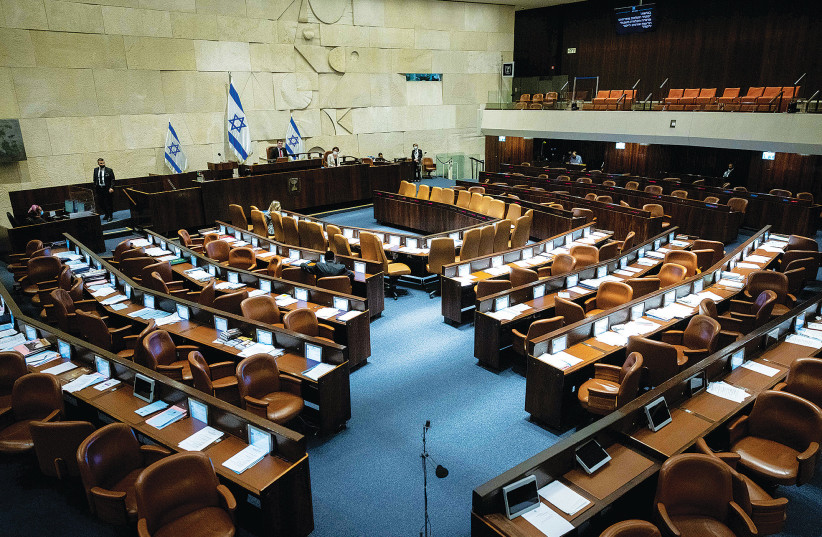Some 48% say the most important issue the Knesset and government needs to deal with is the high cost of living, far more than the government’s judicial overhaul (22%), personal safety (14%) or Iran (10%), according to a poll by Menachem Lazar of Panels Politics.
The numbers break down differently between respondents who said that they intend to vote for parties who are currently in the coalition, versus those who intend to vote for parties in the opposition.
Among opposition party voters, 60% say the high cost of living needs to be treated first, as opposed to just 15% who opted for the judicial overhaul or 13% for personal safety.
Among coalition voters, however, 38% of respondents said the judicial overhaul was most important, while 31% opted for the high cost of living.
The poll was conducted on April 26-27 among 526 respondents. The margin of error is 4.3%.

High cost of living is an immediate problem
“Israel’s high cost of living is the country’s immediate problem – aside from the attempt at overhauling our legal system,” Prof. Dan Ben-David, head of the Shoresh Institution for Socioeconomic Research and an economist at Tel-Aviv University, said in response to the poll.
“Unfortunately, behind the curtain of public discourse there is a much more severe problem and few comprehend the magnitude of its significance. Half the children of Israel are today receiving a third-world education – and they belong to the fastest growing parts of the population.
“This means that they are not receiving the tools to work in a competitive global economy, or an understanding of what living and upholding a modern liberal democracy entails. As adults, they will only be able to support a third-world economy, which will not be able to maintain first-world healthcare or welfare systems – or the first-world army that our children will need to physically survive in the neighborhood that we live in,” Ben-David added.
“However, we are living in historic times. We will not emerge from 2023 the same Israel that entered it. Part of what will determine who and what we are at the end of this year involves our ability to understand and internalize what truly determines if Israel will be here for our children and grandchildren – and as a safe haven for our people – in 40 years.”
